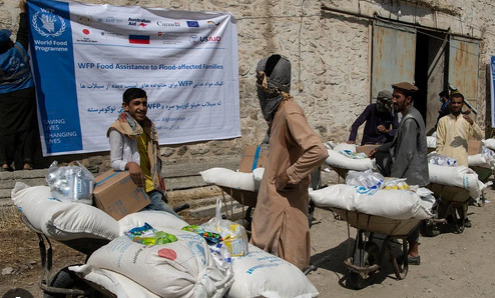A report released by the United Nations Office for the Coordination of Humanitarian Affairs (OCHA) stated that Afghanistan continues to face a complex humanitarian crisis, including the long-term effects of war, poverty, food insecurity, natural disasters, and climate change.
OCHA report, available on its website says that that Afghanistan’s humanitarian needs and response in 2024 face a “severe financial gap.”
The report indicates that in 2024, approximately 23.7 million people, including 5.9 million women and 5.4 million men, require humanitarian assistance.
According to the United Nations Office for the Coordination of Humanitarian Affairs, despite the severity of needs in Afghanistan, out of the requested budget of $3.6 billion to assist 17.3 million vulnerable individuals, only $238 million has been received.
UN agency warned that the humanitarian situation in Afghanistan is severe and without immediate and sustained donor assistance, vulnerable individuals, especially women, children, and the elderly, will face potentially severe consequences.
According to the published report, humanitarian assistance was provided in 2023 to approximately 26.3 million individuals, including 16.5 million receiving food and livelihood support, 9.9 million with health care, 5.7 million children and pregnant/lactating women receiving nutrition assistance, 3.5 million receiving protection support, 2 million children receiving education, and 1 million individuals with emergency shelter and non-food items















